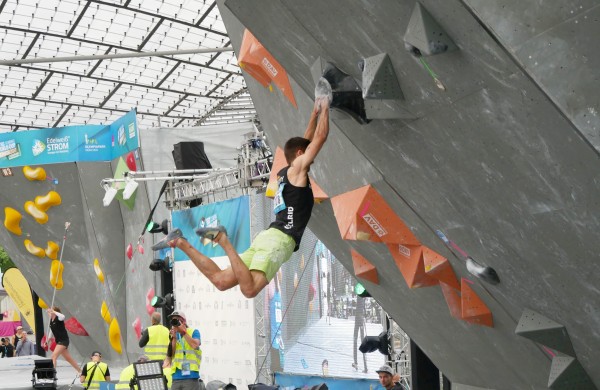In this article (in German, published in Süddeutsche Zeitung) David argues for a reform of the controversial doping control system ADAMS. When translating the text into English here, David shortened it in some parts and added more detailed information in some other places.
The controls (urine and blood tests) in ADAMS can be carried out unannounced daily between 6 a.m. and 11 p.m. There ist not enough consideration given to personal circumstances, although the National Anti-Doping Agency in Germany (NADA) must be informed months in advance of David’s daily availability. David has also been announced that in future checks could be carried out around the clock, regardless of his need for rest and night sleep as a competitive athlete and student. And NADA is not prepared in principle to do without doping controls, e.g. during university exams or in the immediate nightly run-up to them.
The „Anti-Doping Administration and Management System“ (ADAMS) is the NADA control program with which the athletes are located. David is a member of the Registered Testing Pool (RTP), the group with the highest level of performance and is therefore checked relatively frequently. Each quarter of the year, David has to enter his whereabouts and activities for each day in advance in ADAMS. This is almost impossible. In addition, there are from time to time technical access problems to the app and it has already happened that he has been misinformed by those responsible about alleged telephone availability for spontaneous changes when a SMS didn’t work. David didn’t get any training or time to get used to the system. If one is not found three times within one year at the indicated place, a ban of two years threatens. The risk is borne by the athlete. It has also happened before that David was ordered back from rock climbing in Ticino at his own expense to German-speaking Switzerland for a doping test and had to leave everything behind together with his climbing partner. Or, that he was late for university duties because the controller was unable to draw blood from his good veins as a climber.
And David is not the only one who doubts the ADAMS system. French sports federations and dozens of top athletes filed unsuccessful complaints against ADAMS before the European Court of Human Rights in Strasbourg due to inadequacies in its handling and interference with personal rights. A GPS-supported competitor product for ADAMS would also have existed, but the umbrella organization WADA (World Anti Doping Agency) rejected it for data protection reasons. However, the ADAMS system itself is viewed very critically by some data protectors.
In the German Alpine Association (DAV), doping controls have been outsourced to NADA since 2014 for reasons of independence. Since then, regular checks have been carried out, which have practically doubled since the announcement that climbing will be Olympic in Tokyo in 2020. It is not possible for the athletes to influence how NADA handles the samples. A TV research in Germany in January showed that the sample bottles can be manipulated. Reporters had succeeded in opening and closing sealed glass bottles by freezing them beforehand. Philipp Abels, DAV competition climbing coordinator, says that every sample becomes vulnerable like this. The athlete participates in ADAMS, gives up a large part of his personality sphere and the NADA doesn’t even get it managed to make the rehearsals fair. Dr. Mortsiefer, a lawyer and NADA board member, believes that the biggest challenge in terms of control material safety now is to find partners who invest in the development of new, safer systems. He says he knows that ADAMS is very much in demand from athletes.
The fight against doping is a balancing act between ensuring clean sport and respecting the personal rights of athletes. The World Anti-Doping Code is due to be adopted at the end of 2019. Until then, ADAMS will also be revised. Perhaps in such a way that David’s personal rights then will be better taken into account…

